Forthcoming
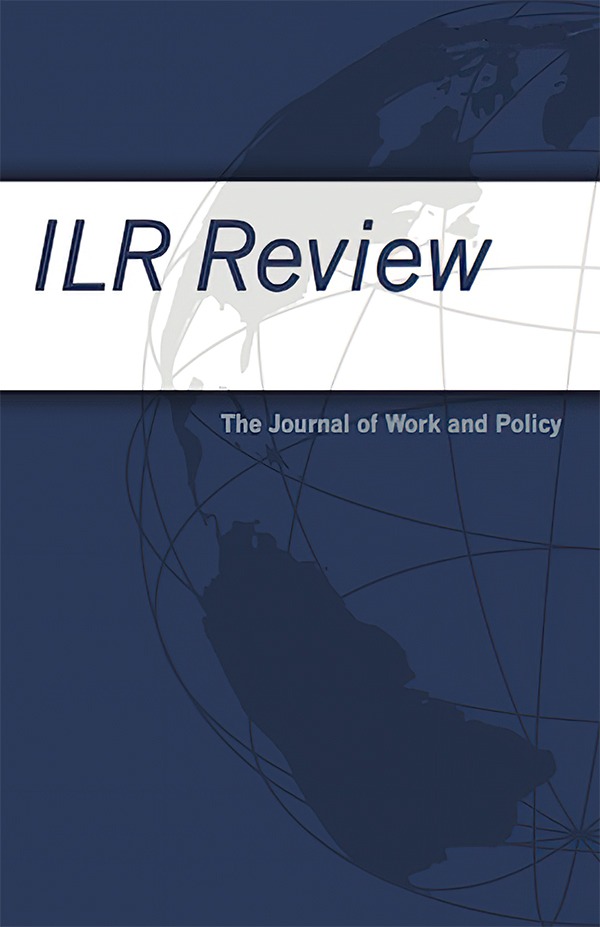



2022
ILR Review
Guest Editors: Roland Erne (University College Dublin), Marco Hauptmeier (Cardiff University), Valeria Pulignano (KU Leuven), and Peter Turnbull (University of Bristol)
Transnational Employment Relations in the European Union
The ILR Review invites submissions for a conference and subsequent special issue devoted to transnational employment relations in the European Union (EU).
The aim of the special issue is to examine the actors, processes, and outcomes of transnational employment relations in the EU, including the impact of EU interventions on employment relations within and across member states, as well as the effects of countervailing collective action on the European integration process.
Articles are invited for the special issue that deal with any aspect of transnational employment relations in the EU before, during, and after the COVID-19 pandemic. Such topics might include current research on actors, processes, policies, and outcomes of European employment relations. Contributions may be quantitative or qualitative empirical studies but can also address transnational employment relations in the EU from a historical and/or comparative perspective. Thus, the special issue aims to sample leading research in the field and spell out possibilities for future research.
Scholars interested in participating in this conference and special issue should submit an extended abstract of 4 to 5 pages (up to 2,500 words) by June 15, 2021, to Valeria Pulignano.
![]()
![]()
![]() Download the call for papers [Closed]
Download the call for papers [Closed]
Published
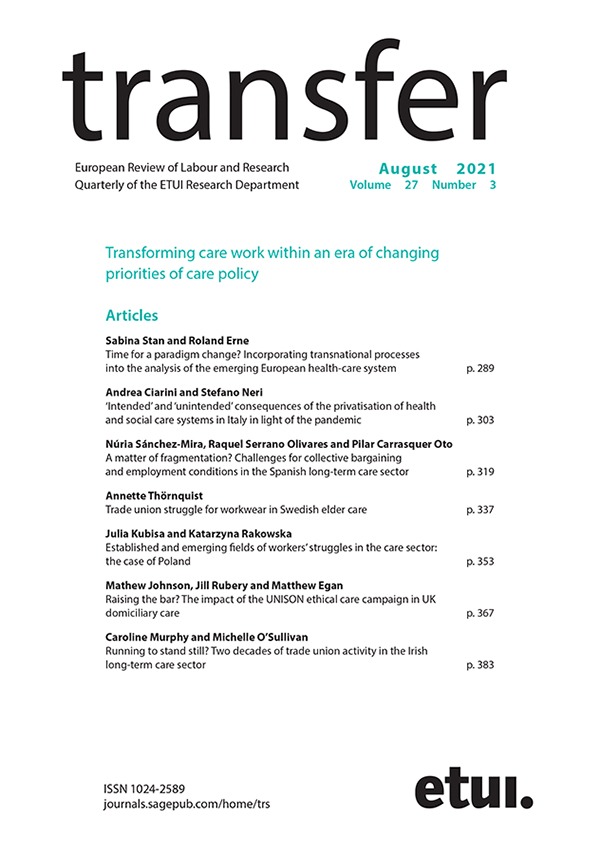
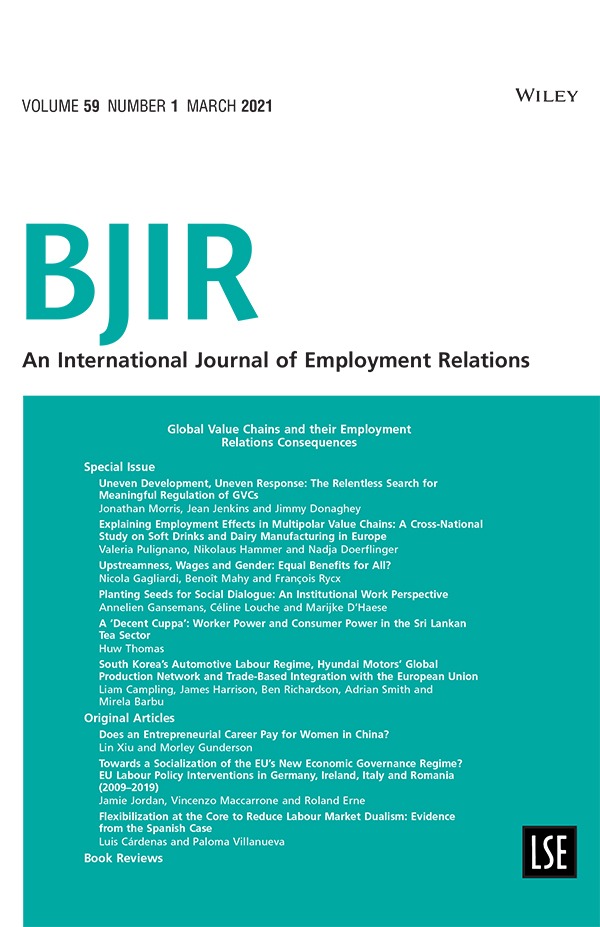
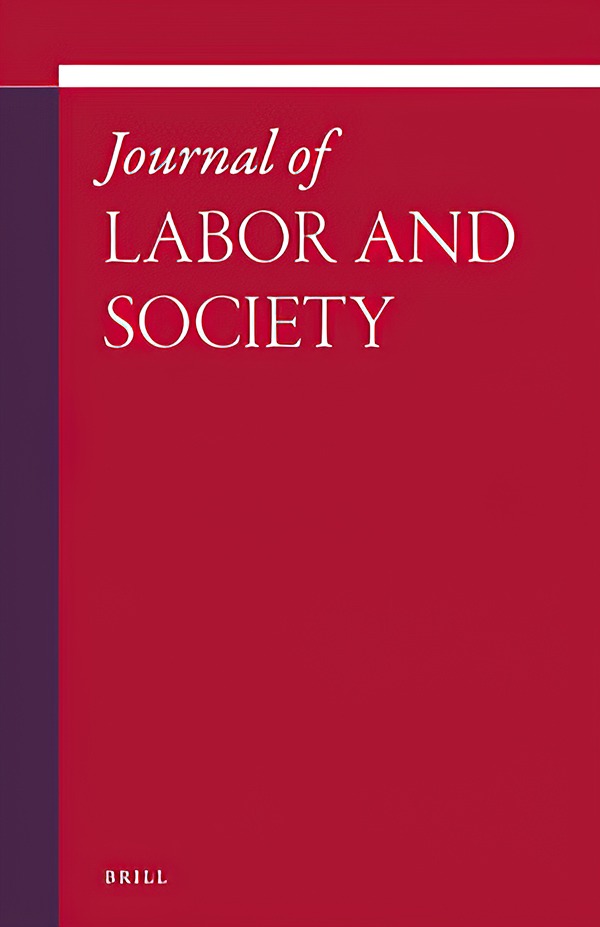
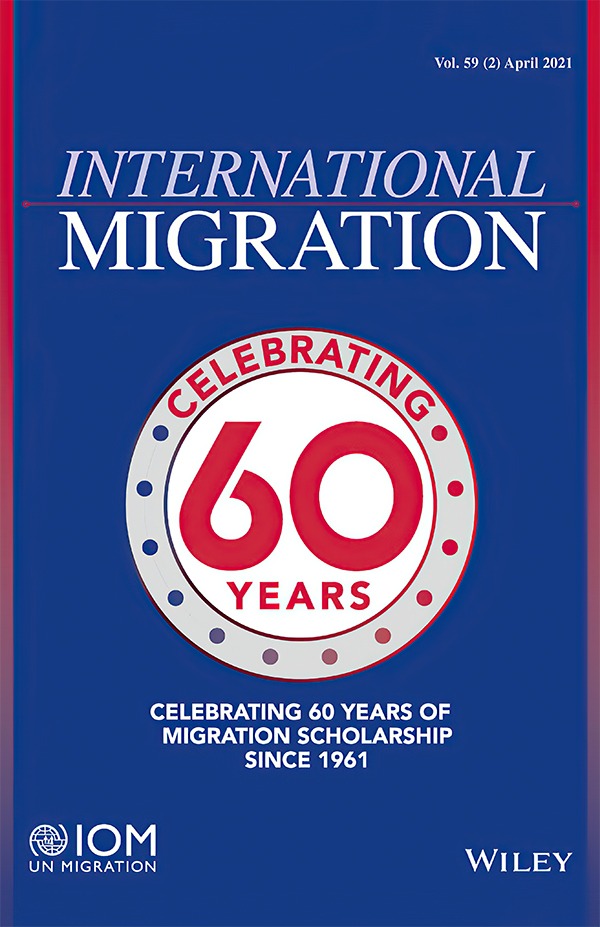


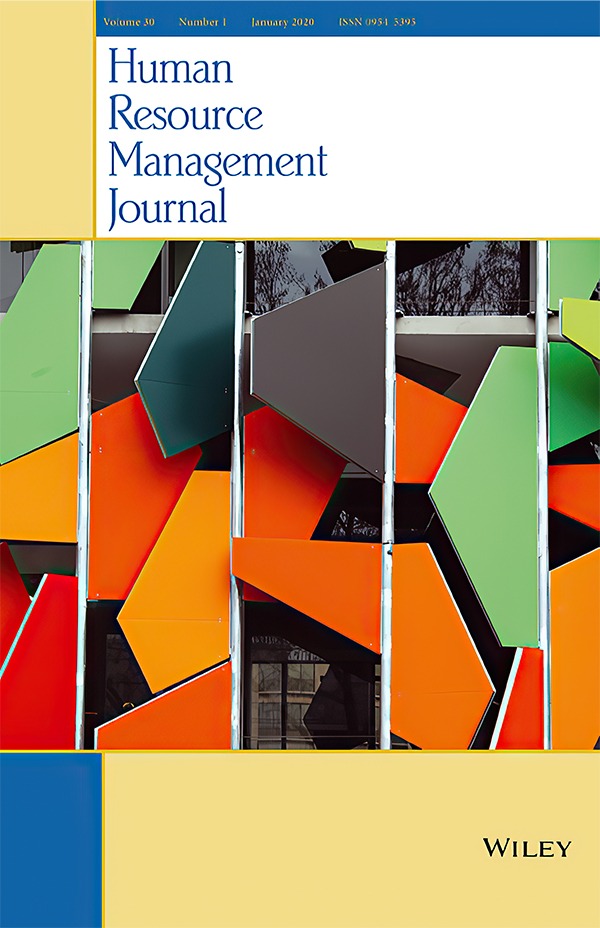
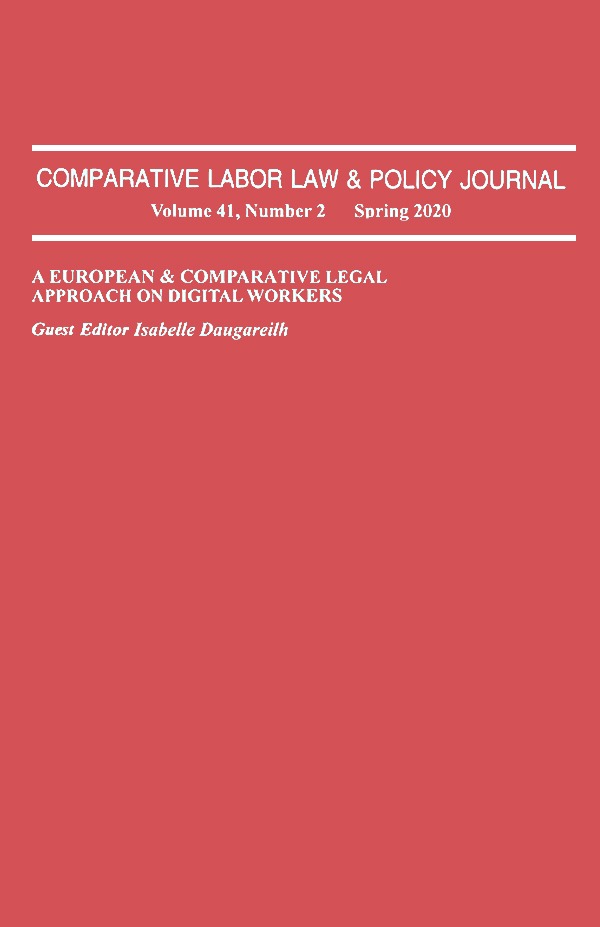
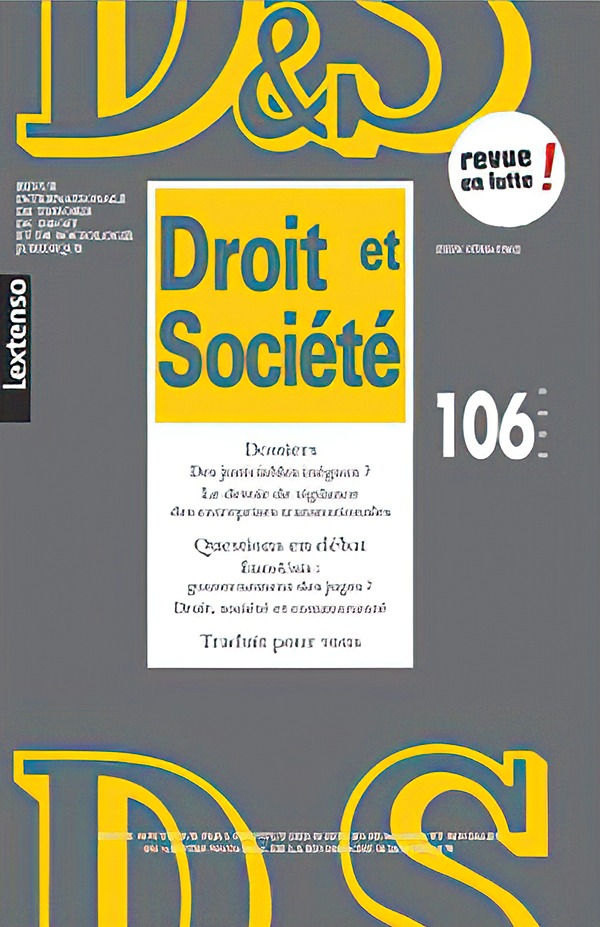
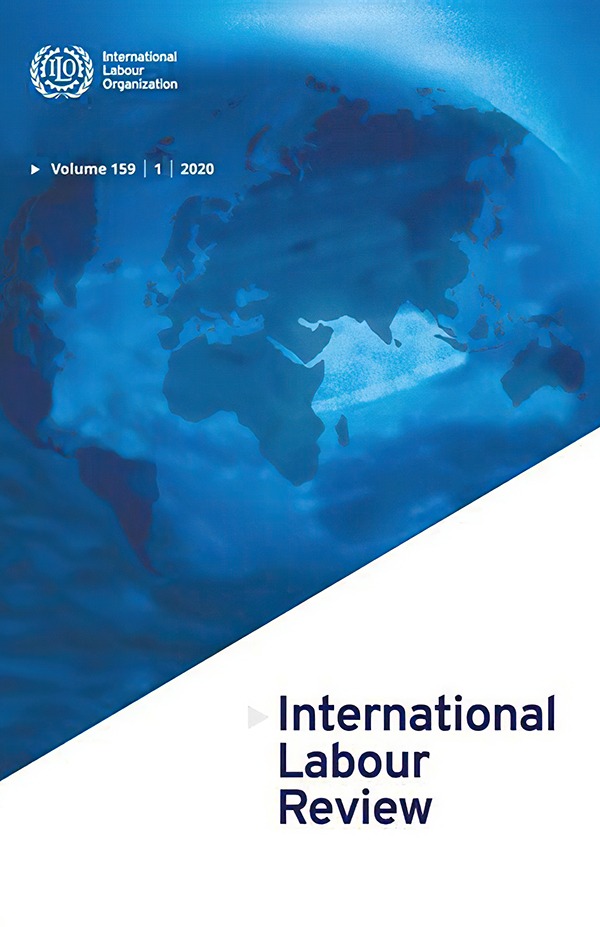
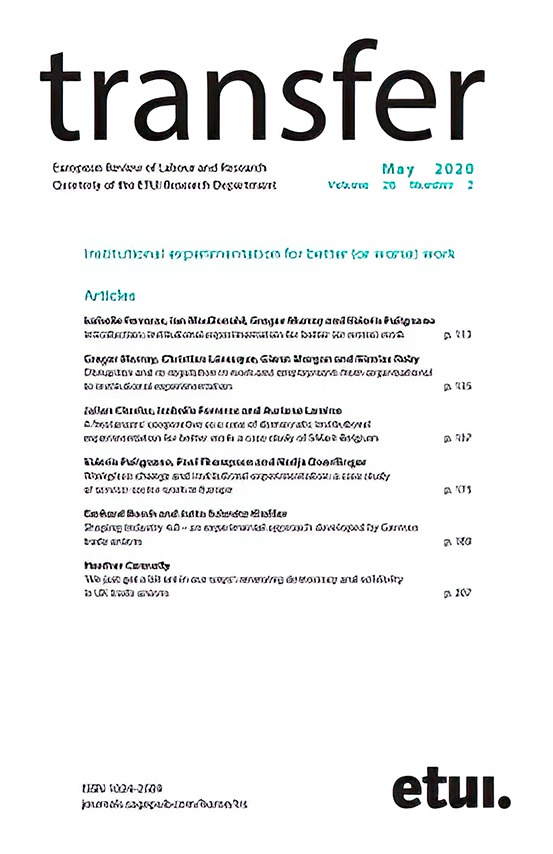
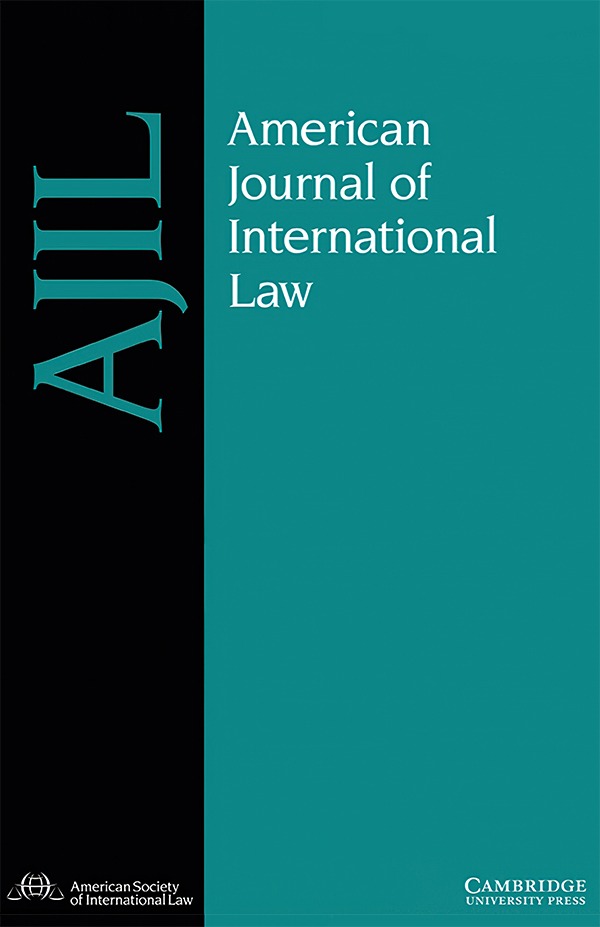
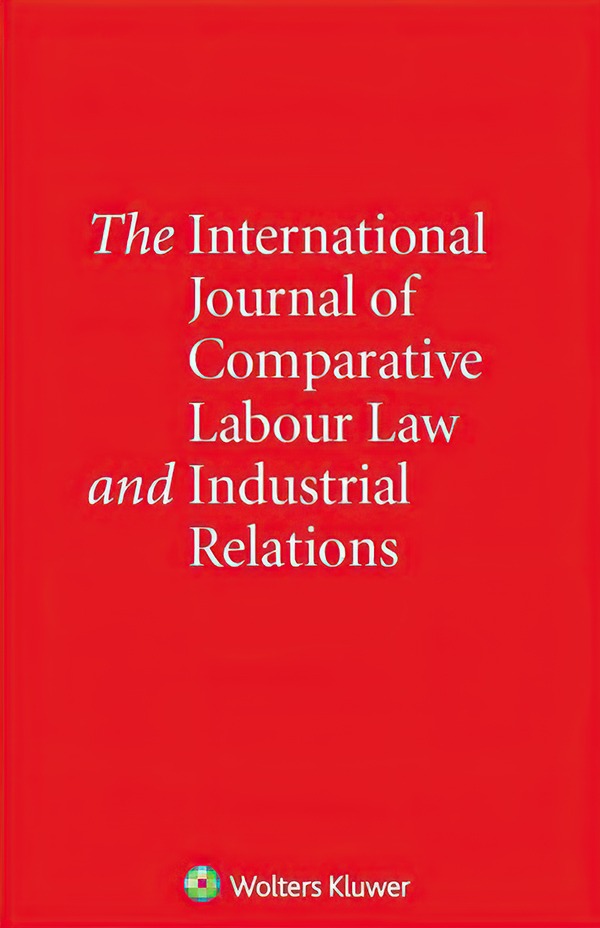
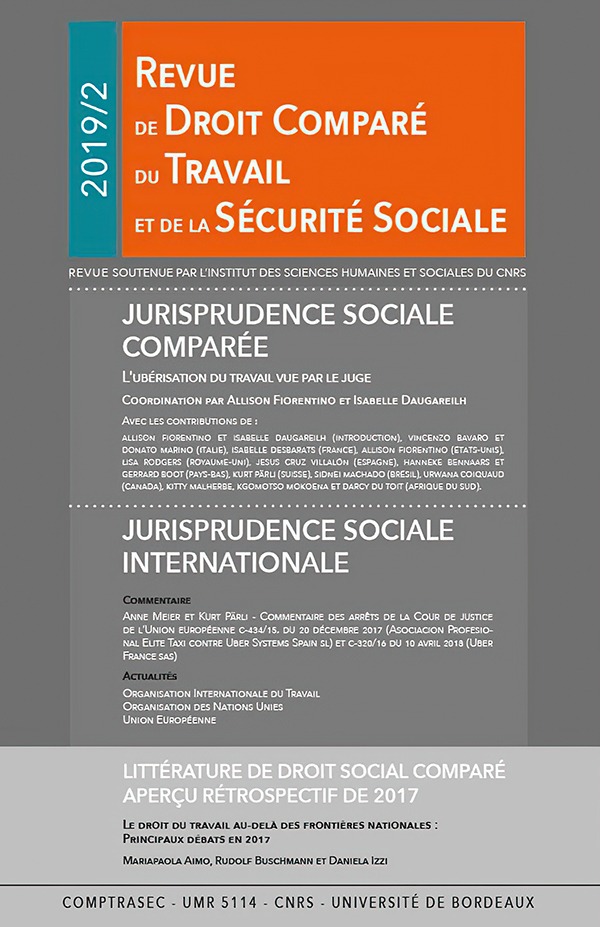
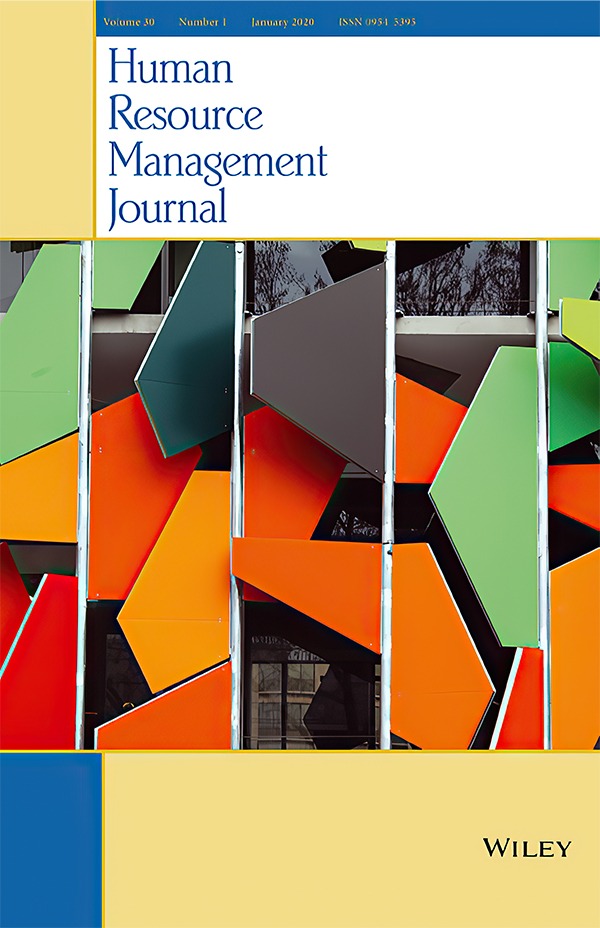
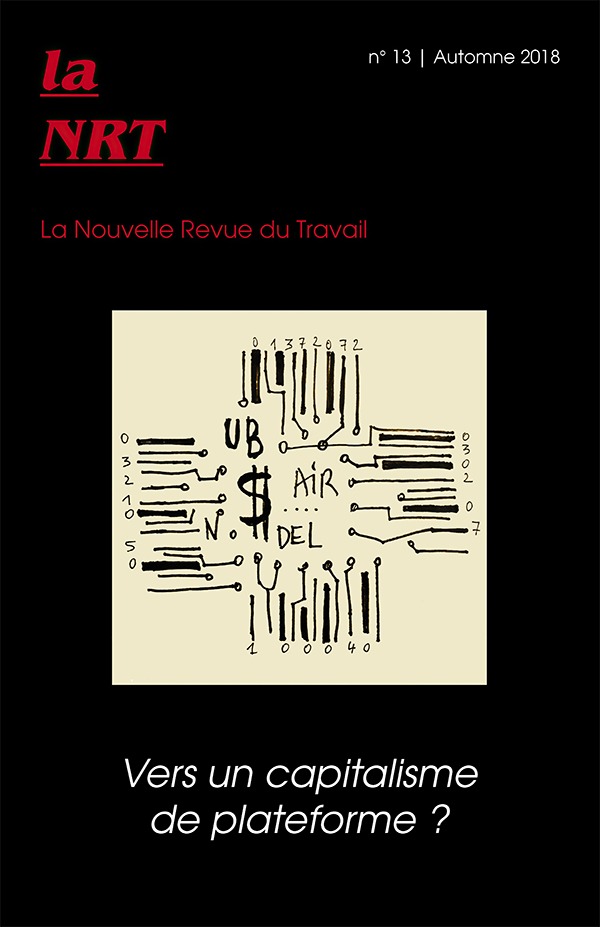
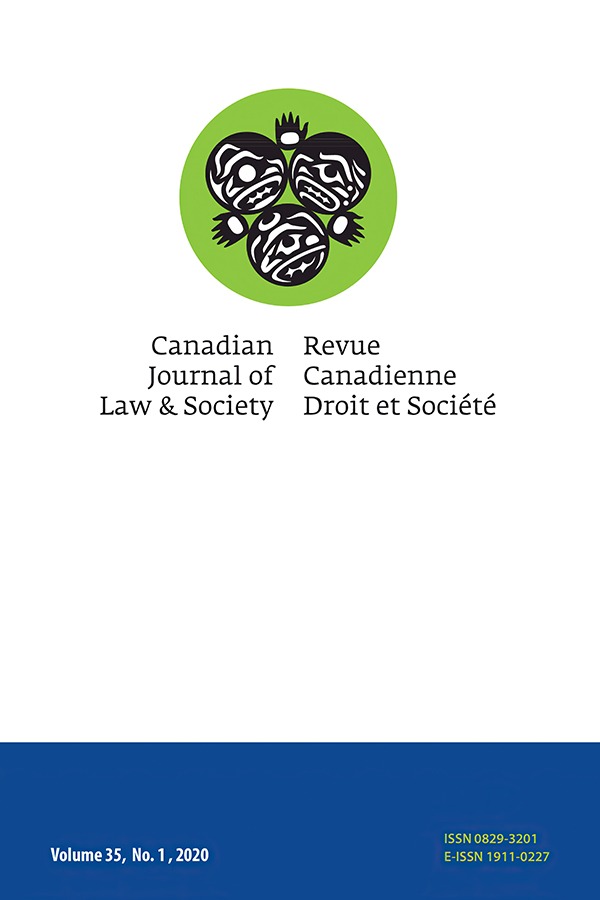
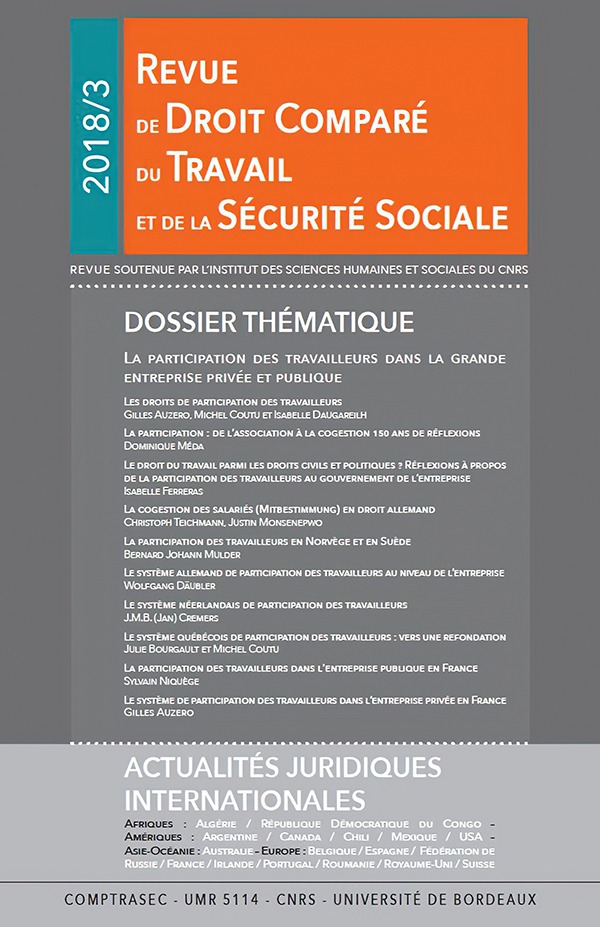

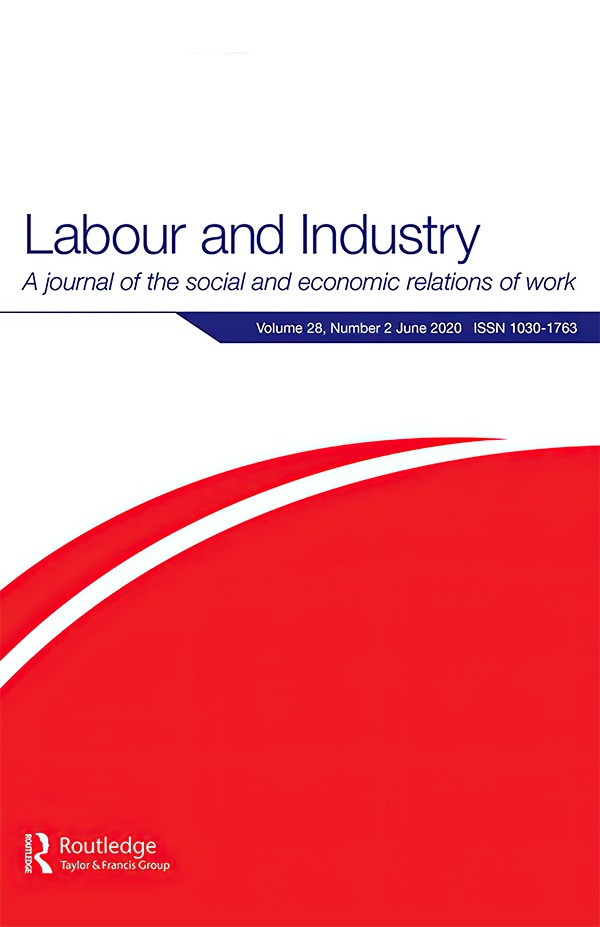
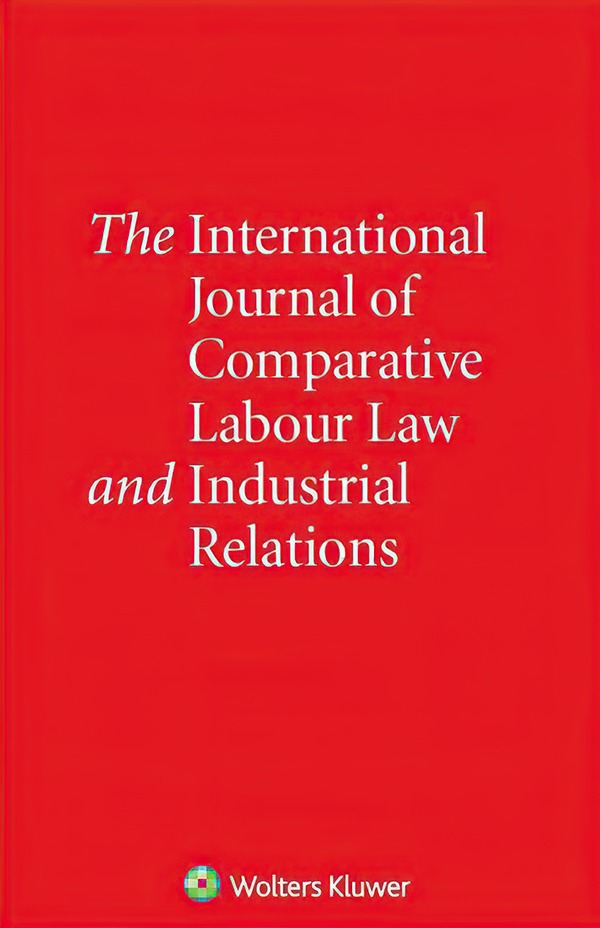
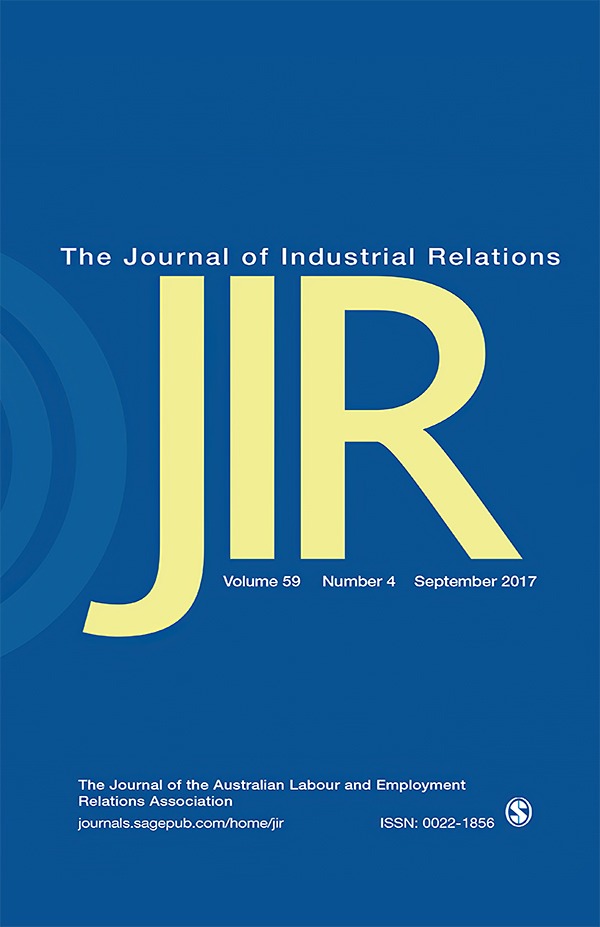


2021 (27-3)
Transfer: European Review of Labour and Research
Guest Editors: Mathew Johnson (WEI-Manchester University), Valeria Pulignano (KU Leuven)
Transforming Care Work within an Era of Changing Priorities of Care Policy
This thematic special issue of Transfer titled ‘Transforming care work within an era of changing priorities of care policy’ explores how policy, institutional and market-driven transformations of care regimes across Europe impact upon the quality of care services and the quality of care work. In this special issue, we bring together a range of national perspectives on changing models of care delivery and care work that spans Ireland, Italy, Poland, Spain, Sweden and the UK, complemented by a transnational analysis of EU health-care policy. Although each contribution situates the specific challenges of precariousness in a particular institutional and market context, by collating these seven perspectives we see common challenges emerging for care workers in diverse settings including residential, domiciliary and long-term care, public and private sectors, liberal and coordinated market economies, as well as southern, northern and eastern Europe with varied traditions of formal and informal familial care.
Given the significant challenges arising as a result of the COVID-19 pandemic this special issue is an important opportunity to reflect on the resilience of care systems across Europe, while also exploring alternative futures for care workers and care work. Newspaper reports of staff shortages, a lack of personal protective equipment, and the limited entitlement of many workers to welfare benefits are all clear symptoms of a sector in crisis. But while there are acute challenges arising specifically from COVID-19, the pandemic has in many ways crystallised long-term structural problems in how care services are funded, designed, and delivered. For example, demographic shifts such as an ageing population and increased international migration, set against the restructuring and retrenchment of welfare states in many countries have created significant challenges in terms of the coverage and quality of state-funded care services. Additionally, cost-driven outsourcing combined with the weakening of collective bargaining pose challenges for the stability of care services, and for the regulation of working conditions. These issues highlight the various contradictions between the different roles of the state in shaping the market for care services as a policy-maker and macroeconomic regulator, as an employer, and as a ‘client’ at the head of increasingly long and complex supply chains. This special issue will cover a series of issues dealing directly or indirectly with such contradictions.
This special issue makes two main contributions. The first is to explore the consequences of the long-term fragmentation and marketisation of care for both quality and working conditions, ranging from the transnational level through to the workplace level. The second is to empirical debates around the role of trade unions in contesting the erosion of standards in care work, while also identifying new theoretical frontiers in the debates around the nature of collective worker action and the future of organised labour in low-wage industries. The articles in this special issue point to a dynamic, if fragile, patchwork of solutions to precariousness that encompass organising, mobilising, and social campaigning, driven forward by a mixture of militancy and social partnership. Hence, while this special issue further exposes the entrenched precariousness faced by care workers as a result of long-term policy failures and myriad regulatory weaknesses and gaps, it also reveals the scope for contestation and resistance to downward pressures on care work and care workers.
Editorial (Mathew Johnson, Valeria Pulignano) • Time for a paradigm change? Incorporating transnational processes into the analysis of the emerging European health-care system (Sabina Stan, Roland Erne) • ‘Intended’ and ‘unintended’ consequences of the privatisation of health and social care systems in Italy in light of the pandemic (Andrea Ciarini, Stefano Neri) • A matter of fragmentation? Challenges for collective bargaining and employment conditions in the Spanish long-term care sector (Núria Sánchez-Mira, Raquel Serrano Olivares, Pilar Carrasquer Oto) • Trade union struggle for workwear in Swedish elder care (Annette Thörnquist) • Established and emerging fields of workers’ struggles in the care sector: the case of Poland (Julia Kubisa, Katarzyna Rakowska) • Raising the bar? The impact of the UNISON ethical care campaign in UK domiciliary care (Mathew Johnson, Jill Rubery, Matthew Egan) • Running to stand still? Two decades of trade union activity in the Irish long-term care sector (Caroline Murphy, Michelle O’Sullivan)
![]()
![]() Download the editorial [Open access]
Download the editorial [Open access]

2021 (59-1)
British Journal of Industrial Relations
Guest Editors: Jean Jenkins (ERU-Cardiff University), Jonathan Morris (Cardiff University), Jimmy Donaghey (University of New South Wales), Richard Locke (Brown University)
Global Value Chains and their Employment Relations Consequences
This special issue of BJIR concerns the issue of the emergence, growth and evolution of global commodity chains and related employment relations issues. The relationship between supply chain relationships and the workplace is topical and referred to explicitly by the ILO agenda on international work and by the OECDs concerns with skills (OECD, 2017). While topical, much of the research in the area focuses on power relations between firms in chains and employment relations concerns being a secondary issue. However, this is changing and an emerging number of recent publications in the BJIR examine the employment relations consequences of supply chains. This special issue brings this emerging research together into a coherent and unified volume.
Uneven Development, Uneven Response: The Relentless Search for Meaningful Regulation of GVCs (Jonathan Morris, Jean Jenkins, Jimmy Donaghey) • Explaining Employment Effects in Multipolar Value Chains: A Cross-National Study on Soft Drinks and Dairy Manufacturing in Europe (Valeria Pulignano, Nikolaus Hammer, Nadja Doerflinger) • Upstreamness, Wages and Gender: Equal Benefits for All? (Nicola Gagliardi, Benoît Mahy, François Rycx) • Planting Seeds for Social Dialogue: An Institutional Work Perspective (Annelien Gansemans, Céline Louche, Marijke D’Haese) • A ‘Decent Cuppa’: Worker Power and Consumer Power in the Sri Lankan Tea Sector (Huw Thomas) • South Korea’s Automotive Labour Regime, Hyundai Motors’ Global Production Network and Trade-Based Integration with the European Union (Liam Campling, James Harrison, Ben Richardson, Adrian Smith, Mirela Barbu)
![]()
![]() Download the introduction [Articles in Free to read mode]
Download the introduction [Articles in Free to read mode]

2021 (24-1)
Journal of Labor and Society
Guest Editors: Anita Hammer (University of Essex), Immanuel Ness (City University of New York)
Informal and Precarious Work: Insights from the Global South
Informal and precarious work remains an enduring reality across the Global South and is growing fast in the North. A recognition that this form of work is the norm globally rather than the exception has ignited debates around analytical frames, activist strategies and development interventions. Engaging with Southern realities, as this special issue aims to do, helps contribute to a better understanding of this rising form of work globally while also providing insights into workers’ resistance and development policy limitations. Through detailed case studies from across the Global South, this special issue argues that informal and precarious work needs to be studied as embedded in concrete, historical, political and social contexts. It highlights the heterogeneity and complexity of intersecting social and material relations that underpin informal and precarious work which has crucial implications for class dynamics and political agency of labour.
Informal and Precarious Work: Insights from the Global South (Anita Hammer, Immanuel Ness) • Famine Labour in late 19th century Colonial North India (Amal Shahid) • Precarious Work and Insecure Lives. De Facto Informalization in Cambodia’s Garment Factories (Anna Salmivaara), Informal Wage Labour and Capital-Labour Struggles in Karnataka’s Automotive Sector (Danisha Kazi) • The Intersectionality of Informal Employment: Insights from Street Vending and Domestic Work in Tanzania (Ilona Steiler) • Precarious Self-Employment in India: A Case of Home-Based Own Account Enterprises (Tulika Tripathi, Nripendra Kishore Mishra) • Trading Time: Retail working time and precarious labour in South Africa, 1960s–1980s (Bridget Kenny) • Decent Work for Domestic Workers in Argentina. Institutional Innovations within the Same Framework (Lorena Poblete) • Global Value Chains and Industrial Relations in the Global South: Social Upgrading Paths in Different Industries (Christina Teipen, Fabian Mehl)
![]()
![]()
![]() Download the introduction [Open access]
Download the introduction [Open access]

2021 (59-2)
International Migration
Guest Editors: J. Adam Perry (St. Francis Xavier University), Dalia Gesualdi-Fecteau (Université du Québec à Montréal)
Contending with Precarity, Temporariness and Life Aspirations in the Context of International Labour Migration
This special issue is the result of a workshop that took place at the On the Move: Employment-related Geographical Mobility in Canada and Beyond International Symposium in St. John’s, Newfoundland and Labrador, Canada, in November 2018. The editors and contributors are all involved, variously as co-investigators and research trainees, with On the Move, a Memorial University of Newfoundland-based Social Sciences and Humanities Research Council of Canada-funded partnership project focused on documenting and assessing the impacts of extended and complex internal and international employment-related geographical mobility for workers, their families, employers, communities and governments. Over the course of the project, the issue of international labour migration has emerged as highly topical and critical to understanding the broader dynamics of mobility for work in the contemporary global context.
Dalia Gesualdi-Fecteau is also a CRIMT co-researcher, in both its FRQ-SC strategic cluster and own SSHRC partnership.
Contending with precarity, temporariness and life aspirations in the context of international labour migration (J. Adam Perry, Dalia Gesualdi‐Fecteau) • Becoming Permanent: The Transition Characteristics of Temporary Foreign Workers to Permanent Residents in Canada (Michael Haan, Yoko Yoshida, Jonathan Amoyaw, Natalie Iciaszczyk) • Flagpoling: Inter‐provincial Mobility of International Migrants within Canada’s Temporary Foreign Worker Program (Christine Knott, Melissa Marschke) • The Negotiation of New Family Formation Post‐migration among Low‐wage Migrant Workers: The Case of Canada (J. Adam Perry) • The Construction of Gratitude in the workplace: Temporary foreign workers employed in health care (Shiva Nourpanah) • Parsing the mobilities of capital and labour: The case of Tim Hortons and internationally mobile Filipino workers (Catherine Bryan, Pauline Gardiner Barber) • Canada’s Temporary Foreign Worker and International Mobility Programs: Charting Change and Continuity Among Source Countries (Tyler Chartrand, Leah F. Vosko) • Breaking Down the Binary: Layers of Vulnerability among Internally and Internationally Mobile Workers in the Context of Southern Africa (Denboy Kudejira) • Creative Recourse in Cases of Forced Labour: Using Human Trafficking, Human Rights and Labour Law to Protect Migrant Workers (Laurence Matte Guilmain, Jill Hanley)
![]()
![]()
![]() Download the introduction [Institutional access required]
Download the introduction [Institutional access required]

2021 (74-3)
ILR Review
Guest Editors: Virginia Doellgast (ILR School, Cornell University), Matthew Bidwell (University of Pennsylvania), Alexander J. S. Colvin (ILR School, Cornell University)
New Directions in Employment Relations Theory: Understanding Fragmentation, Identity, and Legitimacy
Because the field of employment relations examines a particular set of social arrangements—the organization of employment—our theories need to adapt as those social arrangements evolve. A rich body of research has documented how work is being reshaped by such forces as the changing role of organized labor in society, the growing complexity of supply chains within and across national borders, the shifting role of the state in regulating employment, and the increased incorporation of previously marginalized voices. Yet we have arguably made less progress in thinking through what these changes mean for the fundamental frameworks that we use to understand the employment relationship.
The goal of this special issue is to advance the development of theory in labor and employment relations by bringing together projects that advance new frameworks and arguments for understanding the changing world of work. Our hope is that these articles can help to reshape our research and identify the critical forces that shape modern employment.
New Directions in Employment Relations Theory: Understanding Fragmentation, Identity, and Legitimacy (Virginia Doellgast, Matthew Bidwell, Alexander J. S. Colvin) • From Bread and Roses to #MeToo: Multiplicity, Distance, and the Changing Dynamics of Conflict in IR Theory (Christine A. Riordan, Alexander M. Kowalski) • Relational Exchange in Non-union Firms: A Configurational Framework for Workplace Dispute Resolution and Voice (Ariel C. Avgar) • Confronting Race and Other Social Identity Erasures: The Case for Critical Industrial Relations Theory (Tamara L. Lee, Maite Tapia) • Identification and Worker Responses to Workplace Change: Evidence from Four Cases in India (Aruna Ranganathan) • Fissured Employment and Network Bargaining: Emerging Employment Relations Dynamics in a Contingent World of Work (Mark Anner, Matthew Fischer-Daly, Michael Maffie) • How Do Employers Choose between Types of Contingent Work? Costs, Control, and Institutional Toying (Chiara Benassi, Andreas Kornelakis) • Rethinking the Role of the State in Employment Relations for a Neoliberal Era (Chris Howell) • The Social Organization of Ideas in Employment Relations (Glenn Morgan, Marco Hauptmeier)
![]()
![]()
![]() Download the introduction [Institutional access required]
Download the introduction [Institutional access required]

2020 (75-4)
Relations industrielles / Industrial Relations
Guest Editors: Christian Lévesque (HEC Montréal), Peter Fairbrother (CPOW-RMIT), Nicolas Roby (CRIMT-Université de Montréal)
Digitalization and Regulation of Work and Employment
This thematic issue is an effort to understand how digitalization is disrupting and reordering the regulation of work and employment. It seeks to contribute to the discussion by considering three complementary questions: How does its impact on the future of work materialize, how does it lead to forms of organizational and institutional experimentation, and what roles do agency and union power play in these processes?
Introduction (Christian Lévesque, Peter Fairbrother, Nicolas Roby) • Du flexible au liquide : le travail dans l’économie de plateforme (Christophe Degryse) • La « fabrique réglementaire » autour de l’arrivée d’Uber (Urwana Coiquaud, Lucie Morissette) • Organiser les inorganisés d’une multinationale de services en ligne? Le virage numérique de l’Organization United for Respect at Walmart (Mathieu Hocquelet) • Digitized Drones in the Steel Industry: The Social Shaping of Technology (Dean Stroud, Victoria Edwards, Martin Weinel) • Nesting Industry 4.0 in High Performance Work Systems: Trade Unions and Workplace Change in the Southern Ontario Automotive Assembly Sector (Tod D. Rutherford, Lorenzo Frangi) • Neo-Taylorism in the Digital Age: Workplace Transformations in French and German Retail Warehouses (Jérôme Gautié, Karen Jaehrling, Coralie Perez) • ‘Smart’ Industrial Relations in the Making? Insights from the Analysis of Union Responses to Digitization in Italy (Stefano Gasparri, Arianna Tassinari)

2020 (30-4)
Human Resource Management Journal
Guest Editors: Steve Vincent (Newcastle University), Greg J. Bamber (Monash University), Rick Delbridge (Cardiff University), Virginia Doellgast (ILR School, Cornell University), Jo Grady (UCU, London), Irena Grugulis (Leeds University)
Situating Human Resource Management Practices in their Political and Economic Context
This special issue focuses on Situating Human Resource Management (HRM) Practices in their Political and Economic Contexts. In an introductory article, the guest editors develop a novel multilevel framework for exploring the political economy of HRM and use this to position the articles in this special issue. They argue that the study of HRM is often too narrowly constructed within a psychological, positivistic paradigm and at an organisation‐level, and that situating HRM in its political and economic context requires a more inclusive, interdisciplinary approach that includes the use of kaleidoscopic imagination and meta‐theoretical bricolage. By embracing a theoretically pluralist approach to studying HRM, researchers are better able to analyse how different levels of the political economy interact with specific HRM practices to impact value creation. They conclude by discussing the contribution of this article and the special issue, as well as highlighting avenues for future research.
The other articles in the special issue illustrate the usefulness of our framework in theorising the role of the different contextual layers of the political economy in shaping HRM practices and outcomes. None of the articles examines the full array of relationships and variables included in the framework, but rather they examine various combinations of these tiers and the relations among them. Together, they demonstrate how specific layers are more salient within explanations of different topics, issues, and subjects in the field of HRM research.
Situating human resource management in the political economy: Multilevel theorising and opportunities for kaleidoscopic imagination (Steve Vincent, Greg J. Bamber, Rick Delbridge, Virginia Doellgast, Jo Grady, Irena Grugulis) • Restoring the missing context in HRM: Habitus, capital and field in the reproduction of Japanese repatriate careers (Leo McCann, Gareth Monteath) • HR analytics: The onto‐epistemology and politics of metricised HRM (Kay Greasley, Pete Thomas) • Hidden in plain sight? The human resource management practitioner’s role in dealing with workplace conflict as a source of organisational–professional power (Ian Roper, Paul Higgins) • Human resource management practices in the context of rising right‐wing populism (Douglas J. Cumming, Geoffrey Wood, Shaker A. Zahra) • Employer silencing in a context of voice regulations: Case studies of non‐compliance (Eugene Hickland, Niall Cullinane, Tony Dobbins, Tony Dundon, Jimmy Donaghey) • Ricardo flies Ryanair: Strategic human resource management and competitive advantage in a Single European Aviation Market (Geraint Harvey, Peter Turnbull) • Strategy emergence in service delivery networks: Network‐oriented human resource management practices at German airports (Jörg Sydow, Carsten Wirth, Markus Helfen) • The HR lady is on board: Untangling the link between HRM’s feminine image and HRM’s board representation (Astrid Reichel, Isabella Scheibmayr, Julia Brandl) • Adoption of LGBT‐friendly practices: The effect of institutional pressures and strategic choice (Dorothea Roumpi, Panagiotis Giannakis, John E. Delery)
![]()
![]()
![]() Download the introduction [Open access]
Download the introduction [Open access]

2020 (41-2)
Comparative Labor Law & Policy Journal
Guest Editor: Isabelle Daugareilh (COMPTRASEC-Université de Bordeaux)
A European and Comparative Legal Approach on Digital Workers
Bordeaux University’s Centre for Comparative Labour and Social Security Law (COMPTRASEC) held a European workshop in November 2018 dedicated to a comparative legal approach to the platform economy and the questions it raises in terms of social legislation. Ten countries (Austria, Belgium, France, Italy, the Netherlands, Romania, Spain, Switzerland, the United Kingdom and the United States) representing a wide variety of legal traditions and faced with different levels of digitalisation of the economy were analysed by legal experts for labour and social security affairs: what are the legal conflicts arising from this new business model, how is national jurisprudence evolving, how are the respective players adapting their strategies?
Already summarized in a working paper entitled The platform economy and social law: Key issues in comparative perspective published by Isabelle Daugareilh, Christophe Degryse and Philippe Pochet (under the European Trade Union Institute imprint), the complete national contributions (Austria, Belgium, France, Italy, the Netherlands, Romania, Spain, Switzerland, the United Kingdom, the United States and the United Kingdom) will form the substance of the special issue of the Comparative Labor Law and Policy Journal.
Introduction (Isabelle Daugareilh) • Locating Unity in the Fragmented Platform Economy: Labor Law and the Platform Economy in the United Kingdom (Luke Mason) • The Status of Platform Workers in the Swiss Legal System (Jean-Philippe Dunand, Sabrine Magoga-Sabatier, Pascal Mahon) • Fitting the Panoply in a Binary Perspective: The Italian Platform Workers in the European Context (Silvia Borelli) • Platform Work in Austria (Günther Löschnigg) • Legal Status of Platform Workers in France (Isabelle Daugareilh) • The Status of Platform Workers in Romania (Felicia Roșioru) • Platforms & Platform Work in Spanish Industrial Relations (Miguel Rodríguez-Piñero Royo) • The Netherlands: Trying to Solve 21st Century Challenges by Using 20th Century Concepts (Nicola Gundt) • Which Labor Rights for On-Demand Workers? A Critical Appraisal of the Current Belgian Legal Framework (Auriane Lamine, Céline Wattecamps).

2020 (3-106)
Droit et Société
Guest Editors : Luca d’Ambrosio (IREDIES, Université Paris 1 Panthéon-Sorbonne), Pauline Barraud de Lagerie (IRISSO-Université Paris-Dauphine)
La responsabilité des entreprises reformulée par la loi : un regard pluridisciplinaire
La promulgation de la loi française relative au devoir de vigilance des sociétés mères et donneuses d’ordre, le 27 mars 2017, a marqué un tournant majeur dans le régime de responsabilité des sociétés commerciales. Cette loi prévoit désormais l’obligation, pour toutes les sociétés françaises dépassant un certain seuil de salariés, d’établir et de mettre en œuvre un « plan de vigilance » propre à identifier et à prévenir les atteintes graves envers les « droits humains et les libertés fondamentales », « la santé et la sécurité des personnes » et « l’environnement » ; et ce pour ce qui concerne leurs activités mais aussi celles de leurs filiales, de leurs sous-traitants ainsi que des fournisseurs avec lesquels est entretenue «une relation commerciale établie». L’obligation légale de mise en œuvre d’un plan de vigilance ouvre à un double régime de la responsabilité pour la société donneuse d’ordre défaillante : celle-ci pourra d’une part être obligée, par une procédure d’injonction, d’adopter un plan de vigilance conforme à la loi ; d’autre part, elle pourra répondre des préjudices causés par ses filiales ou relations commerciales établies, et que la mise en œuvre d’un plan de vigilance effectif aurait permis d’éviter.
C’est pour inscrire cette expérimentation juridique dans un contexte complexe et multidimensionnel que ce dossier propose d’appréhender la notion de devoir de vigilance à la fois comme produit politique, comme objet juridique et comme norme de gestion. Par ce regard pluridisciplinaire, qui prolonge et dépasse l’abondante production doctrinale sur le devoir de vigilance, les contributions réunies ici permettent d’éclairer les enjeux et les problématiques relatives à ce processus d’appréhension juridique de la responsabilité sociale des entreprises.
La responsabilité des entreprises reformulée par la loi : un regard pluridisciplinaire
Présentation du dossier (Luca d’Ambrosio, Pauline Barraud de Lagerie) • Le devoir de vigilance : une innovation juridique entre continuités et ruptures (Luca d’Ambrosio) • La loi sur le devoir de vigilance des sociétés multinationales : parcours d’une loi improbable (Guillaume Delalieux) • Devoir de vigilance : la norme de gestion comme source de droit ? (Armand Hatchuel, Blanche Segrestin) • La loi sur le devoir de vigilance : un modèle pour (re)penser la responsabilité des entreprises (Tatiana Sachs, Juliette Tricot) • La mise en œuvre du devoir de vigilance : une managérialisation de la loi ? (Pauline Barraud de Lagerie, Élodie Béthoux, Arnaud Mias, Élise Penalva Icher).
![]()
![]() Download the introduction [In French]
Download the introduction [In French]

2020 (159-4)
International Labour Review
Guest Editor: Adelle Blackett (LLDRL-McGill University)
Transnational Futures of International Labour Law
This special issue emerges from an initiative to commemorate the centenary of the International Labour Organization (ILO). With the support of a 2016 Pierre Elliott Trudeau Foundation Fellowship, the guest editor had the honour to offer a bilingual course at the McGill University Faculty of Law entitled the Transnational Futures of International Law: La justice sociale dans le monde du travail.
The Winter 2019 Transnational Futures of International Labour Law course was a collective effort, characterized by a rich mix of presentations and comments to registered students (who also had the opportunity to comment on the speakers’ presentations) from leading and emerging scholars from around the world, high ranking international labour officials, independent UN experts and several dignitaries. Each session was also webcast live, and was joined by a vast group of participants worldwide. A webarchive of the lectures remains available, and serves as a source for ongoing knowledge- sharing and reflection on international labour law.
This special issue builds on a number of the stellar presentations for the course. Each represents a distinct, important dimension of the emerging field of transnational labour law.
Introduction: Transnational Futures of International Labour Law (Adelle Blackett) • Engagement with sustainability at the International Labour Organization and wider implications for collective worker voice (Tonia Novitz) • Les relations entre droit international et droit européen du travail et leur incidence sur le développement du droit social international et européen (Sophie Robin-Olivier) • On the ILO and prison labour: an invitation for recalculation (Faina Milman Sivan, Yair Sagy) • TBC (Bernard Duhaime, Éloïse Ouellet-Décoste) • The Rana Plaza disaster seven years on: Transnational experiments and perhaps a new treaty? (Anne Trebilcock) • The trade/labour relationship in light of The WTO Appellate Body’s Embrace of Pluralism (Joanna Langille) • On social regionalism in transnational labour law (Adelle Blackett)
![]()
![]() Download the introduction [Institutional access required]
Download the introduction [Institutional access required]

2020 (26-2)
Transfer: European Review of Labour and Research
Guest Editors: Isabelle Ferreras (TED-CriDIS-UCLouvain), Ian MacDonald (University of Montreal), Gregor Murray (University of Montreal), Valeria Pulignano (KU Leuven)
Institutional experimentation for better (or worse) work
In different national, institutional and organisational contexts, and in conditions of uncertainty, worker organisations, old and new, are experimenting in response to the major fault lines of change they face. This special issue focuses on these processes of experimentation: the disruption of traditional forms of regulation of work and employment; how a variety of actors are engaged in experimentation about the governance of work and employment; how these actors are making claims on the state; how these processes can lead to better and to worse work; and how strong sets of capabilities and particular configurations of resources on the part of those engaged in experimentation can contribute to new forms of work regulation and indeed better work. Key themes include the agency and resilience of actors and their development of new collective capabilities, the importance of deliberation and democracy, the strategic and reflexive nature of their experimentation, the potential scalability of experimentation into new forms of institutionalisation integrating core values such as equality, solidarity and democracy, and new models of research aggregation requiring ongoing dialogue between actors and researchers.
Introduction: Institutional experimentation for better (or worse) work (Isabelle Ferreras, Ian MacDonald, Gregor Murray, Valeria Pulignano) • L’expérimentation institutionnelle au travail, pour le meilleur (ou pour le pire) (Isabelle Ferreras, Ian MacDonald, Gregor Murray, Valeria Pulignano) • Disruption and re-regulation in work and employment: from organisational to institutional experimentation (Gregor Murray, Christian Lévesque, Glenn Morgan, Nicolas Roby) • A freelancers’ cooperative as a case of democratic institutional experimentation for better work: a case study of SMart-Belgium (Julien Charles, Isabelle Ferreras, Auriane Lamine) • Workplace change and institutional experimentation: a case study of service-sector work in Europe (Valeria Pulignano, Paul Thompson, Nadja Doerflinger) • Shaping Industry 4.0 – an experimental approach developed by German trade unions (Gerhard Bosch, Jutta Schmitz-Kießler) • ‘We just get a bit set in our ways’: renewing democracy and solidarity in UK trade unions (Heather Connolly).
![]()
![]() Download the first article [Open access]
Download the first article [Open access]
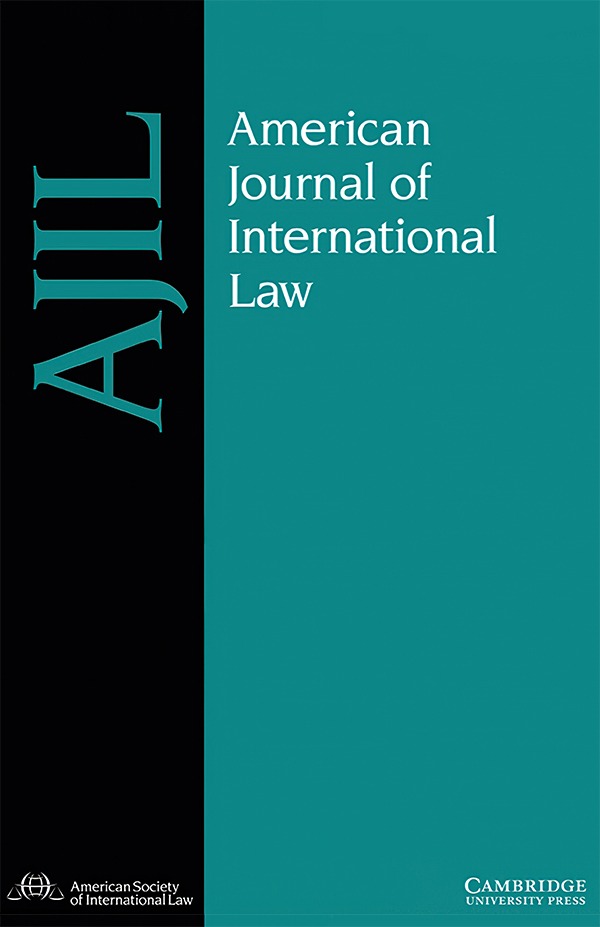
2019 (113)
American Journal of International Law
Guest Editors: Adelle Blackett (LLDRL-McGill University), Laurence R. Helfer (Duke University School of Law)
Transnational Futures of International Labor Law
During the annual International Labour Conference in Geneva in June 2019, the ILO adopted the Centenary Declaration for the Future of Work and a pair of path-breaking legal instruments on the elimination of violence and harassment. In addition, the Office of the Legal Advisor convened leading scholars to reflect on “ILO100: Law for Social Justice,” and ILO officials have been present at scholarly conferences discussing the organization’s past and future.
One such contribution to the ILO’s centenary, out of which this AJIL Unbound symposium emerges, was a course, the Transnational Futures of International Labor Law, convened at the McGill University Faculty of Law. The course featured twelve weeks of live webcast lectures by leading scholars from around the world on topics including corporate social responsibility, reliance on international labor standards by regional and domestic courts, labor market informality through the lens of climate justice, and the ILO’s approach to prison labor under the Forced Labour Convention, 1930 (No. 29). Most sessions included commentary by senior legal experts from the ILO’s permanent secretariat, the International Labour Office.
This special issue builds on a number of the stellar presentations for the course. Each represents a distinct, important dimension of the emerging field of transnational labour law.
Introduction to the Symposium on Transnational Futures of International Labor Law (Adelle Blackett, Laurence R. Helfer) • Theorizing Emancipatory Transnational Futures of International Labor Law (Adelle Blackett) • The ILO at 100: Institutional Innovation in an Era of Populism (Laurence R. Helfer) • International Labor Law and its Others: Governance by Norm Versus Governance by Knowledge (Liam McHugh-Russell) • Reimagining Trade Agreements for Workers: Lessons from the USMCA (Álvaro Santos) • Past as Prologue? Theorizing Transnational Labor Law Between Jessup and Jenks (Guy Fiti Sinclair) • China and The Belt and Road Initiative: Transnational Labor Law Under State Capitalism 4.0 (Mimi Zou)
![]()
![]() Download all articles [Open Access]
Download all articles [Open Access]

2019 (35-2)
International Journal of Comparative Labour Law and Industrial Relations
Guest Editors: Kevin Banks (CLCW-Queen’s University), Manoj Dias-Abey (University of Bristol)
Migrants at Work
Canada introduced a non-industry-specific temporary foreign worker program in 1973, which in the 1990s started to become more clearly divided into ‘high-skilled’ and ‘low-skilled’ streams. In the early 2000s, several changes were made to the program that expanded the low- skilled stream. One of the consequences of these changes was to shift the source of temporary migrant workers from the Global North to the Global South. Commentators have argued that one of the driving forces behind the growth of low-skilled temporary migration is the need to ensure the country’s labour market needs without encumbering the state with citizenship obligations. As we are learning, even this does not balance tensions between market imperatives and nativist demands. When the issue of temporary labour migration started to attract significant negative publicity in 2013, the government implemented a range of reform measures, which were mostly designed to assuage concerns that Canadian jobs were being taken by foreigners. Despite the compelling evidence of temporary migrant workers being treated poorly in their workplaces, subjected to wage theft, to dangerous occupational hazards, and to regular violations of other workplace rights and entitlements, there were only limited reforms aimed at improving the working conditions of these workers. Even those measures intended to ensure better enforcement of their limited labour rights appear not to have had an unambiguously positive impact on the migrant workers.
It is in this context that the Centre for Law in the Contemporary Workplace, with the generous support of the Queen’s University Faculty of Law and CRIMT’s Institutional Experimentation for Better Work Partnership Project, organized the ‘Migrants at Work in Canada’ symposium on 20 and 21 April 2018 in Kingston, Ontario. The symposium assembled a multidisciplinary group of academic researchers as well as advocates from prominent migrant justice organizations. The five articles that appear in this special issue are the fruits of this exchange. Some of the articles have a Canadian and US focus although their significance reaches well beyond the borders of North America, while others take a more explicitly international approach.
Migrant Workers: Contesting Definitions, Institutional Responses, and Rights (Kevin Banks, Manoj Dias-Abey) • Expanding the Movement of Natural Persons Through Free Trade Agreements? A Review of CETA, TPP and ChAFTA (Åsa Odin Ekman, Samuel Engblom) • Revisiting Social Reproduction: Migrant Care Workers and Their Entitlements in Canada (Supriya Routh) • Enforcing Employment Standards for Temporary Migrant Agricultural Workers in Ontario, Canada: Exposing Underexplored Layers of Vulnerability (Rebecca Casey, Leah F. Vosko, Eric Tucker) • Institutionalizing a Binational Enforcement Strategy for Migrant Worker Rights (Xóchitl Bada, Shannon Gleeson)
![]()
![]() Download these articles [Institutional access required]
Download these articles [Institutional access required]

2019 (2)
Revue de droit comparé du travail et de la sécurité sociale
Editors: Isabelle Daugareilh (COMPTRASEC-Université de Bordeaux), Allison Fiorentino (Université de Rouen)
The Uberisation of Work
« The uberisation of work » refers to a new form of work at the crossroads of self-employment and employment. National judges have often been confronted with this issue, but the emergence of service platforms, such as UBER, has brought the debate on the characteristics of the workforce to the forefront of the legal arena. If the legislator seems passive, the same cannot be said of the judge. The various case law cases discussed demonstrate that the courts are uncomfortable with this issue. Some judges have decided to change the criteria for salaried employment in order to allow these workers who benefit from a certain independence from the qualification of employee. This is the case with the California Supreme Court, which has reformed an old and well-established jurisprudence. Other judges, without touching the classic criteria of salaried employment, did not hesitate to include platform workers in the category of employees. The French Court of Cassation, putting an end to a certain hesitation in the case law, ruled that the particular nature of the activity of platform workers was by no means sufficient to rule out the qualification of employee. However, some judges, without recognising the status of employees, have granted these workers certain rights. This is the case for the British magistrates who did not hesitate to criticise the contractual arrangement that UBER imposes on its drivers to make them artificially qualify as self-employed. Similarly, Canadian judges have also pilloried this attitude of platforms that use their dominant position to impose unfair clauses, such as arbitration clauses, to deny workers access to a judge. It is rare at present for a Praetorian consensus to be established in a State. Thus, in Spain, Netherlands and Switzerland there were divergent responses. Other judges, in Brazil and Italia, refuse to change the traditional criteria of salaried employment, which results in depriving many workers using these platforms of the protection of employees’ status. Finally, some judges have not yet given an answer as the South African judge who has not yet taken a clear position.
The eleven contributions to this special issue consider national responses to this challenge.
Introduction (Isabelle Daugareilh, Allison Fiorentino) • Le travail dans l’économie des plateformes dans la jurisprudence italienne (Vincenzo Bavaro, Donato Marino) • Les travailleurs des plateformes juridiques en France : le juge, arbitre de leur statut ? (Isabelle Desbarats) • La jurisprudence américaine et l’ubérisation du travail (Allison Fiorentino) • La jurisprudence sur l’ubérisation du travail au Royaume-Uni (Lisa Rodgers) • La notion de travailleur subordonné en Espagne face aux nouvelles formes d’emploi (Jesús Cruz Villalón) • Les plateformes numériques aux Pays-Bas et la jurisprudence travailliste (Hanneke Bennaars, Gerrard Boot) • L’ubérisation du travail en Suisse (Kurt Pärli) • L’ubérisation du travail dans la jurisprudence brésilienne (Sidnei Machado) • Uber et la réglementation canadienne : état de la jurisprudence (Urwana Coiquaud) • Le droit du travail et la « révolution technologique » en Afrique du Sud (Kitty Malherbe, Kgomotso Mokoena, Darcy du Toit)
![]()
![]() Download these articles [Institutional access required]
Download these articles [Institutional access required]

2019 (29-1)
Human Resource Management Journal
Guest Editors: Leon Gooberman (ERU-Cardiff University), Marco Hauptmeier (ERU-Cardiff University), Edmund Heery (ERU-Cardiff University)
Employer Organisations
Employer organisations transformed (Philippe Demougin, Leon Gooberman, Marco Hauptmeier, Edmund Heery) • When territory matters: Employer associations and changing collective goods strategies (Peter Sheldon, Edoardo Della Torre, Raoul Nacamulli) • Adapting to survive: The case of Danish employers’ organisations (Christian Lyhne Ibsen, Steen E. Navrbjerg) • Small change, big impact? Organisational membership rules and the exit of employers’ associations from multiemployer bargaining in Germany (Martin Behrens, Markus Helfen) • Employers’ organisations as social movements: Political power and identity work (Lisa A. Sezer) • The evolution of employers’ organisations in the United Kingdom: Extending countervailing power (Leon Gooberman, Marco Hauptmeier, Edmund Heery)
![]()
![]() Download these articles [Institutional access required]
Download these articles [Institutional access required]

2018 (13)
La nouvelle revue du travail
Guest Editors: Sarah Abdelnour (IRISSO-Université Paris-Dauphine), Sophie Bernard (IRISSO-Université Paris-Dauphine)
Towards a Platform Capitalism ?
This special issue of La nouvelle revue du travail entitled: “Towards a Platform Capitalism? “situates from the outset the radical transformations that digital platforms are introducing into contemporary capitalism; in several places one could speak of a break with the way these platforms are transforming work in itself, its conditions of exercise and especially employment.
The articles in this issue present the results of the first surveys carried out in various sectors of the platform economy, surveys largely focused on the transformations to work induced by the latter. Behind this economic model considered innovative, what characterizes this new type of economic transaction is that the providers of work are often individuals who are not salaried, or even professionals. They are the ones who own the means of production and the work force that they sell as independents, either directly to consumers or to an intermediary. The workers of these platforms assume the risks related to the activity (investment, clientele, physical risk) while having little autonomy in the organization of the work itself (calibrated processes, prices set by the platform, controls by the latter and by consumers).
Vers un capitalisme de plateforme ? Mobiliser le travail, contourner les régulations (Sarah Abdelnour, Sophie Bernard) • Livrer à vélo… en attendant mieux (Arthur Jan) • « Faites de votre passion un métier ». Etsy, une plateforme d’émancipation féminine ? (Anne Jourdain) • Constitution et exploitation du capital communautaire. Le travail des streamers sur la plateforme Twitch (Mathieu Cocq) • Quel droit social en Europe face au capitalisme de plateforme ? (Josépha Dirringer)
![]()
![]() Download these articles [Open access]
Download these articles [Open access]

2018 (33-2)
Canadian Journal of Law & Society
Guest Editor: Adelle Blackett (LLDRL-McGill University)
Decolonizing Labour Law: Contributions to an Emergent Transnational Labour Law
The contributors to this special issue examine the ways in which the emerging transnational labor law (TLD) can contribute to the dissociation of labor law from its paradigmatic and usual narrative framework, an atomized framework, dating from the industrial revolution, which takes as a model of the worker the adult, white male, sole wage earner of his nuclear family, originating from a global Northern state, and which consequently designates this worker as the sole recipient of distributive justice. Although the tone of each article varies, the contributions are all characterized by a relatively sober analysis of the counter-hegemonic potential of transnational labour law.
Introduction: Decolonizing Labour Law — Contributions to an Emergent Transnational Labour Law / Vers un droit du travail décolonisé — Contributions au droit transnational du travail en émergence (Adelle Blackett) • Struggles and Actions for Legal Space in the Urban World: The Case of Informal Economy E-waste Workers (Sabaa Ahmad Khan) • Transnational Labour Law and the Environment: Beyond the Bounded Autonomous Worker (Sara L. Seck) • The Use of Transnational Labour Law in Steering Socially Responsible Corporate Governance towards Increased Worker Protection (Isabelle Martin) • Transnational Labour Governance: A Critical Review of Proposals for Linkage through the Lens of the Rana Plaza Collapse in Bangladesh (Zobaida Khan) • La citoyenneté corporative entre libéralisme et démocratie : les individus ou leur communauté ? (Armel Brice Adanhounme) • Travail non libre et rapports sociaux de sexe – À propos des programmes canadiens d’immigration temporaire (Elsa Galerand, Martin Gallié) • The Inequality of Low-Wage Migrant Labour: Reflections on PN v FR and OPT v Presteve Foods (Bethany Hastie) • Temporary Labour Migration and the “Ceremony of Innocence” of Postwar Labour Law: Confronting “the South of the North” (Adrian A. Smith)

2018 (3)
Revue de droit comparé du travail et de la sécurité sociale
Guest Editors: Michel Coutu (Université de Montréal), Gilles Auzero (COMPTRASEC-Université de Bordeaux), Isabelle Daugareilh (COMPTRASEC-Université de Bordeaux)
La participation des travailleurs dans la grande entreprise privée et publique
The articles published in this special issue originate from an international seminar jointly organized by CRIMT (Interuniversity Research Centre on Globalization and Work – Canada) and COMPTRASEC (Centre for Comparative Study of Labour and Social Security Law) and held in Bordeaux on September 22 and 23, 2017. This seminar was part of the international research project Better Institutions for Better Work Partnership Project initiated by CRIMT with the support of the Social Sciences and Humanities Research Council of Canada and of which COMPTRASEC is a stakeholder: it was supported by the Universities of Paris-Dauphine, Bremen, Montreal and Louvain-La-Neuve (UCL).
Les droits de participation des travailleurs (Michel Coutu, Gilles Auzero, Isabelle Daugareilh) • La participation : de l’association à la cogestion 150 ans de réflexions (Dominique Méda) • Le droit du travail parmi les droits civils et politiques ? Réflexions à propos de la participation des travailleurs au gouvernement de l’entreprise (Isabelle Ferreras) • La cogestion des salariés (Mitbestimmung) en droit allemand (Christoph Teichmann, Justin Monsenepwo) • La participation des travailleurs en Norvège et en Suède (Bernard Johann Mulder) • Le système allemand de participation des travailleurs au niveau de l’entreprise (Wolfgang Däubler) • Le système néerlandais de participation des travailleurs (J.M.B. (Jan) Cremers) • Le système québécois de participation des travailleurs : vers une refondation (Julie Bourgault, Michel Coutu) • La participation des travailleurs dans l’entreprise publique en France (Sylvain Niquège) • Le système de participation des travailleurs dans l’entreprise privée en France (Gilles Auzero)
![]()
![]() Download the introduction [Open access]
Download the introduction [Open access]

2018 +
Futures of Work Online Magazine
Editors: Harry Pitts (PWRG-University of Bristol), Katie Bales (PWRG-University of Bristol), Huw Thomas (PWRG-University of Bristol)
Futures of Work
Futures of Work is a blog offering radical and critical thinking on ongoing and emerging issues associated with work and employment. Powered by Bristol University Press in collaboration with a multidisciplinary editorial team at the University of Bristol, the blog is produced in association with the Faculty Research Group for Perspectives on Work and the ESRC World of Work PhD and ECR Network.
Recent articles include: ISSUE 15: TECHNOLOGY AND REMOTE WORKING POST COVID-19 (Tony Dundon, Lee Stringer, Stephen Mustchin) • ISSUE 14: THE FUTURE OF WORK AND THE COVID-19 CRISIS (Guy Mundlak, Judy Fudge) • ISSUE 14: PANDEMIC, POVERTY, AND POWER IN GLOBAL EXPLOITATION CHAINS (Huw Thomas) • ISSUE 14: ALONE, TOGETHER? CO-WORKING SPACES AND THE COVID-19 CRISIS (The Co-Working Research Collective).

2018 (28-2)
Labour & Industry: a journal of the social and economic relations of work
Guest Editors: Amanda Coles (Deakin University), Fiona Macdonald (CPOW-RMIT), Annie Delaney (CPOW-RMIT)
Gender and informality at work
This special issue examines the interaction of gender with informal work, processes of informalisation and experiences of informality as a defining feature of work under contemporary capitalism. The articles interrogate the interactions between the experiential, discursive and structural dimensions of informality as they emerge in relation to the social construction of gender relations. These analyses present a comprehensive survey of the ‘continuum of practices’ which constitute informality, and draws attention to the urgency of understanding the ways in which codified and social practices normalise, formalise and conceal the gendered dimensions of informality at work.
Gender and informality at work – theoretical provocations: an introduction to the special issue on gender and informality (Amanda Coles, Fiona Macdonald, Annie Delaney) • Thinking about informality: gender (in)equality (in) decent work across geographic and economic boundaries (Annie Delaney, Fiona Macdonald) • De facto informality? Rethinking the experience of women in the formally regulated workplace (Lisa Heap, Tom Barnes, Sally Weller) • ‘Intimacy, informalization and intersecting inequalities: tracing the linkages’ (V. Spike Peterson)
![]()
![]() Download the introduction [Open access]
Download the introduction [Open access]

2018 (34-2)
International Journal of Comparative Labour Law and Industrial Relations
Guest Editors: Adelle Blackett (McGill University), Anne Trebilcock (University of Göttingen)
Special Section: Regulatory Innovation on Decent Work for Domestic Workers in the Light of International Labour Organization Convention No. 189
The special issue contains two articles prepared for the third biennial Labour Law Research Network Conference, in Toronto in 2017, that examine national regulation on domestic work in the light of the ILO’s landmark Decent Work for Domestic Workers Convention, 2011 (Convention No. 189) and its accompanying Recommendation No. 201. (53(1) Int’l Legal Materials 250–266 (2014).) It includes a third contribution, prepared under an International Development Research Centre (IDRC) Small Grant for Research Innovation. The special issue discusses examples of regulatory innovation on decent work for domestic workers from Europe (Germany), Latin America (Argentina, Chile and Paraguay) and Africa (South Africa).
Introduction (Adelle Blackett) • Challenges in Germany’s Implementation of the ILO Decent Work for Domestic Workers Convention (Anne Trebilcock) • The Influence of the ILO Domestic Workers Convention in Argentina, Chile and Paraguay (Lorena Poblete) • Regulatory Innovation in the Governance of Decent Work for Domestic Workers in South Africa: Access to Justice and the Commission on Conciliation, Mediation and Arbitration (Adelle Blackett, Thierry Galani Tiemeni)
![]()
![]() Download the article [Institutional access required]
Download the article [Institutional access required]

An initiative of

2017 (59-4)
Journal of Industrial Relations
Guest Editors: Tobias Schulze-Cleven (SMLR-Rutgers University), Mingwei Liu (SMLR-Rutgers University)
Collective action: Engaging ideas, interests and institutions
This special issue analyses innovation in collective action, exploring workers’ global attempts to build and mobilize power resources in the context of deep challenges to organized labour’s old strategies. This is both an empirically pressing subject in terms of worker welfare and also an urgent matter for theorizing the political dynamics of evolving employment relations in globalized production and accumulation (Coe and Yeung, 2015; Ferguson, 2009; Fichter, 2015b; Lakhani et al., 2013; Piketty, 2014). It is crucial for scholars to better understand labour’s contemporary adaptation by exploring different kinds of innovation as well as the causal processes that have produced them. For scholars to make headway in theorizing workers’ agency and delineating organized labour’s changing influence on the world’s increasingly complex governance of work, they need to work toward a more detailed appreciation of experimentations and empirical developments and nurture a more precise conceptual language for the drivers, processes and outcomes of the ongoing reorientation in collective action.
Collective action and globalization: Building and mobilizing labour power (Tobias Schulze-Cleven) • The battle over flexibilization in post-communist transitions: Labor politics in Poland and the Czech Republic, 1989–2010 (Rudra Sil) • Institutions and collective action in divided labour movements: Evidence from Indonesia (Teri L Caraway, Michele Ford) • IG Metall’s comeback: Trade union renewal in times of crisis (Stefan Schmalz, Marcel Thiel) • Supra-union and intersectional organizing: An examination of two prominent cases in the low-wage US restaurant industry (Maite Tapia, Tamara L Lee, Mikhail Filipovitch) • Beyond disciplinary boundaries: Leveraging complementary perspectives on global labour (Tobias Schulze-Cleven, Gary Herrigel, Nelson Lichtenstein, Gay Seidman) • Resisting labour market insecurity: Old and new actors, rivals or allies? (Richard Hyman, Rebecca Gumbrell-McCormick)
![]()
![]() Download these articles [Institutional access required]
Download these articles [Institutional access required]

2017 (72-3)
Relations industrielles / Industrial Relations
Guest Editors: Martine D’Amours (Université Laval), Yanick Noiseux (Université de Montréal), Christian Papinot (Université de Poitiers), Guylaine Vallée (Université de Montréal)
New Frontiers of the Employment Relationship
The transformation of the employment relationship causes—and form part of—a whole series of interferences that pose particular challenges for theoretical formalization, for the understanding of concrete situations of work, and for the legal and social measures that aim to ensure the social protection and representation of workers and to examine conditions for the deployment of collective action. Interferences and the blurring of boundaries include: between a salaried and self-employed worker, between paid work conducted in the public sphere and work that is carried out for free in the visible private sphere and between formal and informal work.
This special issue of Relations Industrielles / Industrial Relations explores these “new” frontiers of the employment relationship. In response to criticism of research trends that focus too narrowly on so-called atypical jobs, which mask the fact that labour transformations ‘destabilize stables’ (Castel, 2009) or extend precariousness and risk to typical jobs (Vosko, 2007), this issue is interested in the characteristics associated with diversity in the employment relationship or, in other words, the effects stemming from the cohabitation of workers having different statuses and/or employers or parties giving the order in concrete work situations.
Les nouvelles frontières de la relation d’emploi (Martine D’Amours, Yanick Noiseux, Christian Papinot, Guylaine Vallée) • Zone grise d’emploi, pouvoir de l’employeur et espace public : une illustration à partir du cas Uber (Christian Azaïs, Patrick Dieuaide, Donna Kesselman) • From Wellington to Quebec: Attracting Hollywood and Regulating Cultural Workers (Maude Choko, Bridget Conor) • Entre salariat et indépendance : analyse juridique et économique de la relation franchisé-franchiseur (Urwana Coiquaud, Isabelle Martin) • La représentation collective au travail en contexte d’externalisation des services publics d’aide à domicile au Québec (Louise Boivin) • Winning Conditions of Precarious Workers’ Struggles: A Reflection Based on Case Studies from South Korea (Byoung-Hoon Lee, Sophia Seung-Yoon Lee) • Quand le droit conforte les stratégies syndicales reproduisant les arrangements institutionnels sources de discrimination systémique (Carole Yerochewski, Diane Gagné)
![]()
![]()
![]() Download these articles [Open access]
Download these articles [Open access]











